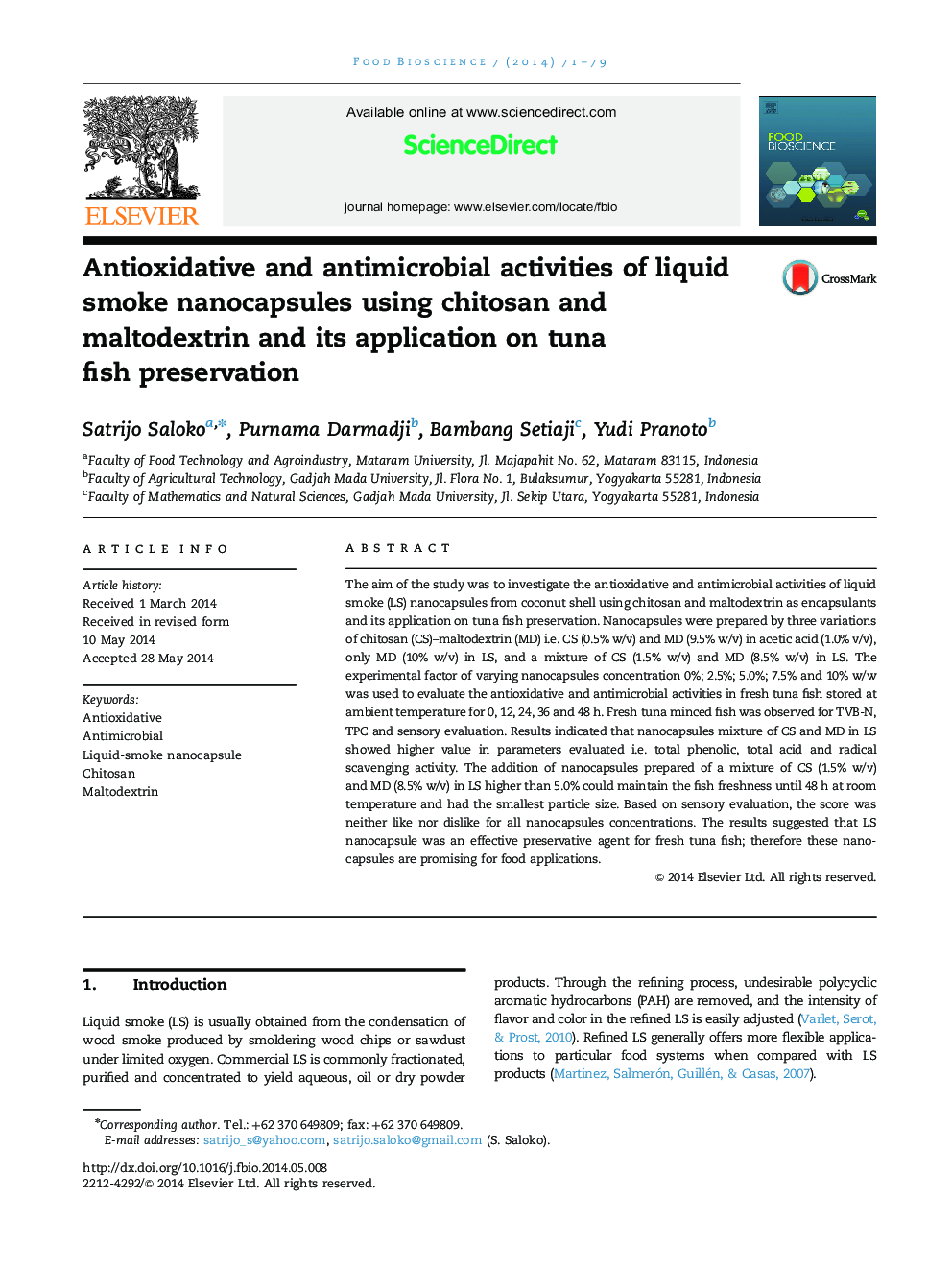| Article ID | Journal | Published Year | Pages | File Type |
|---|---|---|---|---|
| 19748 | Food Bioscience | 2014 | 9 Pages |
The aim of the study was to investigate the antioxidative and antimicrobial activities of liquid smoke (LS) nanocapsules from coconut shell using chitosan and maltodextrin as encapsulants and its application on tuna fish preservation. Nanocapsules were prepared by three variations of chitosan (CS)–maltodextrin (MD) i.e. CS (0.5% w/v) and MD (9.5% w/v) in acetic acid (1.0% v/v), only MD (10% w/v) in LS, and a mixture of CS (1.5% w/v) and MD (8.5% w/v) in LS. The experimental factor of varying nanocapsules concentration 0%; 2.5%; 5.0%; 7.5% and 10% w/w was used to evaluate the antioxidative and antimicrobial activities in fresh tuna fish stored at ambient temperature for 0, 12, 24, 36 and 48 h. Fresh tuna minced fish was observed for TVB-N, TPC and sensory evaluation. Results indicated that nanocapsules mixture of CS and MD in LS showed higher value in parameters evaluated i.e. total phenolic, total acid and radical scavenging activity. The addition of nanocapsules prepared of a mixture of CS (1.5% w/v) and MD (8.5% w/v) in LS higher than 5.0% could maintain the fish freshness until 48 h at room temperature and had the smallest particle size. Based on sensory evaluation, the score was neither like nor dislike for all nanocapsules concentrations. The results suggested that LS nanocapsule was an effective preservative agent for fresh tuna fish; therefore these nanocapsules are promising for food applications.
